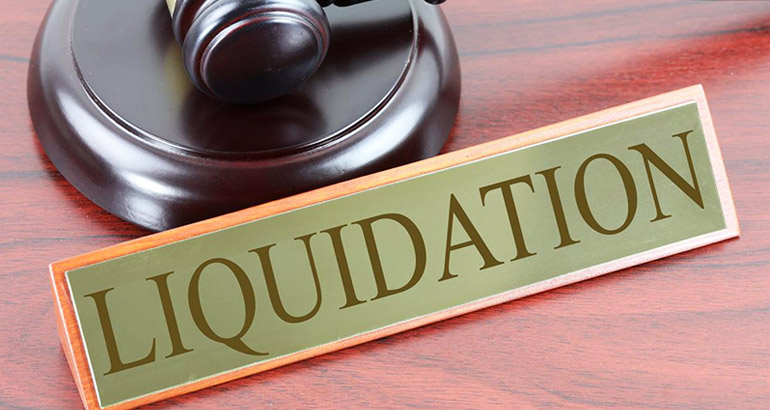The Basic Principles Of Company Liquidation
Table of ContentsSome Known Questions About Company Liquidation.Little Known Questions About Company Liquidation.The Basic Principles Of Company Liquidation The Best Strategy To Use For Company LiquidationThe Basic Principles Of Company Liquidation
A liquidator is particularly appointed to manage the ending up of a firm's events in order for it to be shut down normally when the firm is going insolvent. The liquidator is an unbiased 3rd party who oversees the sale of company possessions in order to settle any type of impressive financial obligations.Their function includes, however is not limited to: Objective Overseer: A liquidator is tasked with serving as an unbiased third party to manage the whole company liquidation process. Create Declaration of Affairs: Liquidators need to produce a detailed statement of events record. This file is dispersed to financial institutions, outlining the present financial standing of business at the time of its liquidation.
After the liquidation of a company, its presence is eliminated from Business House and it discontinues to be a legal entity. If supervisors navigated the process uncreative, there would certainly be no penalties or individual liability for strong financial debts expected. Currently, with a fresh start, supervisors can check out brand-new service chances, though expert appointment is recommended.
The 10-Minute Rule for Company Liquidation
If more than 90% of all company shareholders agree, liquidation can take place on short notice within seven days, the minimum statutory notice for lenders. Normally, the bigger the liquidation and the more possessions and funding the service has, the longer the process will certainly take.

We understand that no two companies are the very same, which is why we will take the time to learn more about your business so we can recommend the most effective strategy for you. We just operate in your benefits, so you can be absolutely positive in the solution we give.
Not known Facts About Company Liquidation
In the UK, there is an established process to shutting down or reorganizing a limited company, whether it is solvent or financially troubled. This process is recognized as liquidation and can only be handled by a licensed bankruptcy specialist (IP) based on the Insolvency Act 1986. There are four main kinds of company liquidation procedure: Financial institutions' Voluntary Liquidation (CVL); Compulsory liquidation; Management; and Members' Volunteer Liquidation (MVL).

In these conditions, it is necessary that the company discontinues trading; if the business remains to trade, the directors can be held directly liable and it can result in the bankruptcy specialist reporting wrongful trading, referred to as misfeasance, which might result in lawsuit. The supervisors assign an insolvency expert and when this has actually been concurred and confirmed, there is a conference with the shareholders.
The supervisors are no much longer entailed in what takes place, including the sale of the company's properties. If the directors want any of the assets, they can notify the IP.
Company Liquidation Things To Know Before You Buy
The primary distinction is that the firm's financial institutions used to the court for an ending up order which requires the financially troubled company right into a liquidation procedure. In many cases, lenders take this action as a last resource because they have not obtained repayment through various other types of settlement. The court appoints a bankruptcy professional, also called an official receiver, to conduct the obligatory company liquidation procedure.
This type of company liquidation is not volunteer and directors' conduct is reported to the UK's Assistant of State once the liquidation process has been finished. Consequently, any type of supervisor that stops working to work together with the IP or has been associated with director misconduct, or a deceitful act, may lead to serious consequences (Company Liquidation).
It is used as a method to secure the firm from any kind of lawful that site activity by its creditors. The directors of the business concur to make normal settlements to settle their financial debts over a duration of time.
What Does Company Liquidation Mean?
This offers the firm with time to develop a strategy moving forward to save the firm and prevent liquidation. Nonetheless, at a knockout post this moment, directors hand control of the firm over to the appointed administrator. If a company is solvent yet the supervisors and investors intend to shut the business, a Participants Volunteer Liquidation is the right choice.
The firm liquidation process is taken care of by a liquidator selected by the directors and investors of the company and they have to sign a declaration that there are no creditors remaining. The liquidation process for an MVL resembles that of a CVL in that assets are understood but the proceeds are distributed to the directors and the shareholders of the business after the liquidator's costs have been paid.
Comments on “How Company Liquidation can Save You Time, Stress, and Money.”